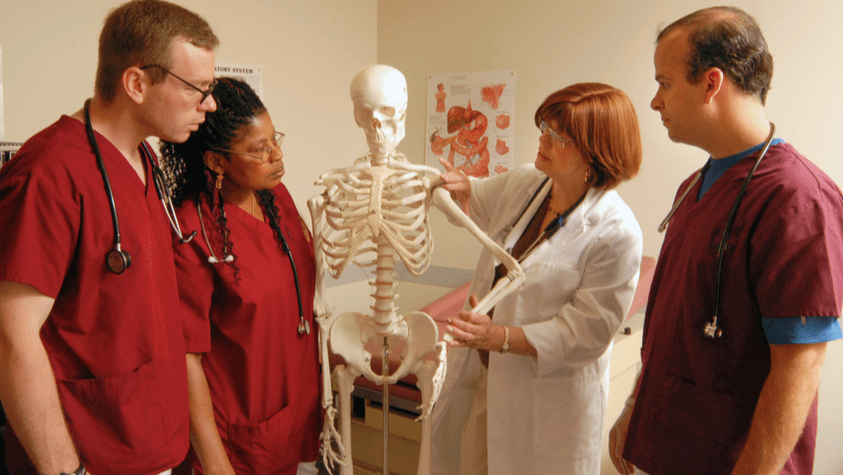
Molding today’s young, eager minds into the minds of some of tomorrow’s finest nurses is a commendable profession that takes a great deal of knowledge, skill, and passion. As a nurse educator, you’ll get the chance to help teach some of the best, brightest, and most compassionate individuals in the country.
What Is a Nurse Educator?
Becoming a nurse educator is a gratifying and respected career choice. Nurse Educators typically report a sense of great personal satisfaction from their careers and benefit from high employer demand for people with their knowledge and skills. Recent studies indicate that there is a shortage of MSN and Ph.D.-educated nurses in the country. Declining numbers are largely attributed to an aging workforce approaching retirement and inadequate numbers of qualified replacements due to a shortage of educational programs and faculty to teach potential students.
A nurse educator is a clinically trained and licensed nurse that educates and trains future nurses. Basically, this profession involves teaching nursing students what they know and what to expect from the profession. As a nurse educator, you should have an expert-level understanding and in-depth knowledge of nursing theory and clinical practice, along with strong communication skills. You should also be able to demonstrate a mastery of basic and advanced nursing techniques and easily explain them to students.
A nurse educator is expected to be a highly effective teacher and a role model for their students. Students will often reference and mirror their teachers’ and mentors’ approaches, so nurse educators need to exhibit a passion for excellence and set a strong example for the nursing students observing them. They should be excited to share their knowledge and watch future generations of nurses grow and blossom into well-trained professionals. A nurse educator should also be a proficient and patient teacher and strive to better the world of nursing.
What Do Nurse Educators Do?
Simply put, nurse educators teach nursing students. However, under the surface, it’s often much more complicated than that. These nursing and education professionals are responsible for designing, evaluating, updating, and implementing new and current nursing education curriculum.
The first responsibility of a nurse educator is to teach. These professionals often work in both classrooms and clinical settings, teaching new nursing student courses and continuing education courses. To perform their jobs well, they must have excellent leadership skills and in-depth knowledge of their fields. Most nurse educators will also act as role models and advisers, helping students along their journeys toward becoming successful nurses.
At some point, a nurse educator may be asked to create new nursing courses or redesign – or update – old courses. To do this, they must stay abreast of the latest nursing trends and developments and base their curriculum on this. Because of this, most nurse educators continue to work as professional nurses in their fields and continue to actively participate in the nursing community, often through professional organizations.
Degree Guides
Where Do Nurse Educators Work?
Nurse educators can often be found in nearly any facility that offers nursing classes. This generally includes healthcare facilities, such as hospitals and long-term care facilities, that offer nursing training programs. Educational institutes that offer a nursing degree or certificate programs also require nurse educators. Examples include universities, community colleges, trade, and vocational schools, and even some high schools.
How to Become a Nurse Educator
To become a nurse educator, you will first need to become a certified registered nurse (RN) or advance practice nurse (APN). Several years of experience in your field is also usually recommended and sometimes even required.
Along with the training and education it takes to become a certified nursing professional, you will also need to complete continuing education courses to keep your certification current. Most employers, for instance, require nurse educators to have a minimum of a master’s degree. Still, mandatory doctoral nursing degrees are becoming more common for nurse educators, especially those seeking tenure.








